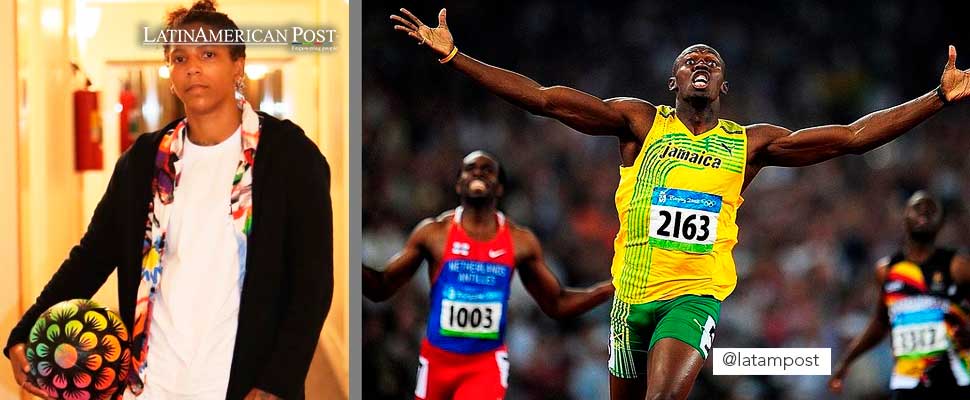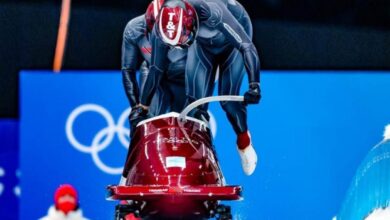Athletes Who Had Their Revenge at the Olympics
We present you with five examples of motivation and improvement that have been seen in the Olympic events.

As a preamble to the Tokyo 2020 Olympic event, we present five figures who had to overcome their bad starts to be able to hang the long-awaited gold medal around their neck. Photos: IG-rafaelasilvaa, IG-usainbolt
LatinAmerican Post | Theoscar Mogollón González
Listen to this article
Leer en español: Atletas que tuvieron su revancha en los Juegos Olímpicos
Every four years one of the best sporting events in the world is organized, where millions of athletes give their best to fulfill their dreams. The Olympic Games are full of magic and, above all, of stories full of motivation and improvement that become the best examples for the youngest. Given this, we present to you as a preamble to the Tokyo 2020 Olympic event five figures who had to overcome their bad beginnings to be able to hang the long-awaited gold medal around their neck.
Rafaela silva
Prejudice and racism were what this Brazilian judoka had to endure after her first experience in the Olympic Games. Since she was little, the athlete had to work hard, since her origins come from one of the most dangerous favelas in her country. Her first Olympic event was in London 2012, at the age of 19, but it did not have the development she expected, as she ended up disqualified in her second fight for an illegal hit. Rafaela did not hide her grief and began to cry inconsolably on the tatami.
Also read: Maria Bueno, the Only Latina Who Conquered Wimbledon
After that bad sporting moment, which also brought with it many criticisms of her on social networks, the Brazilian considered abandoning the sport completely. However, she turned to psychological support and returned to training. Her rematch came four years later in Rio 2016, the perfect setting to hang a gold medal that meant Brazil's first in those Olympics.
Oscar Figueroa
"He who perseveres, wins", the saying goes, and there is no better example in Olympic sport than that of the Colombian. Weightlifting is a discipline that requires a lot of physical strength, but also mental strength, something Oscar resorted to after his participation in Beijing 2008. At that event he could not lift the bar on his first attempt, this due to an injury that had been dragging since months ago. Fifth place at Athens 2004 was joined by an early elimination four years later.
Once recovered from the injury and had considered retiring from competitive activity, the Colombian once again believed in himself and continued his training sessions. His records gradually improved and he aimed strong for London 2012, landing a silver medal and setting a new Olympic record. But the best was for his last Olympic event, in Rio 2016, where he managed to finish first and thus become the third Colombian athlete to win a gold medal.
Usain Bolt
Holding eleven world titles and eight Olympic titles is easy, but in reality, it is the opposite. The key to that is in discipline and the Jamaican knew from his first Olympics that to achieve success and be the best he had to do something else. At Athens 2004 he presented himself with the greatest possible confidence, although a hamstring injury prevented him from running at full capacity and he was eliminated in the first round of the 200 meters, leaving a record well below expectations.
Despite that, Bolt quickly got to work again and added a change in attitude towards athletics that brought a new version of him. Hand in hand with his new coach who proposed to modify some personal aspects, in addition to undergoing treatment to overcome his physical problems, the sprinter appeared in Beijing to hang the gold medals in the 100 and 200 meters. From there, his legacy began.
Michael Phelps
Being the most decorated Olympian of all time is not an easy task, and although many may not believe it, the beginning of that had difficult moments to overcome. Michael first appeared at the Olympics at just 15 years old, in Sydney 2000, being the youngest swimmer to participate. Despite giving it his all, that little shark finished fifth in the 200-meter butterfly. In the end, he returned home without a medal, but with the conviction that he was participating in a discipline tailored to his needs.
Expectations grew for Athens, where the swimmer aimed to match Mark Spitz's mark of seven gold medals in the same Olympic event. In the end, he achieved six and two bronze, one of those losing in the 200-meter freestyle to Ian Thorpe and Pieter van den Hoogenband. However, for Beijing it would achieve the unexpected: hang eight gold medals. Phelps holds the records for the most Olympic gold medals (23), the most gold medals in individual events (13), and the most Olympic medals in men's events (15).
Hicham El Guerrouj
Medium-distance races are those events where speed and endurance are combined, in addition to requiring their share of tactics. It is here when athletes like the Moroccan are able to draw applause from the spectators due to the high demand they must go through. But Hicham had to wait a few years to reach glory, since in his first Olympic Games, Atlanta 1996, he suffered a spectacular fall in the final of the 1,500 meters that forced him to abandon the test.
In the following years, he continued to improve his records and participate in different events, all with a view to Sydney 2000. However, in the final he was surprised on the finish line by the Kenyan athlete Noah Ngeny, thus taking the medal of silver. That bittersweet taste in his mouth did not discourage him and he continued to fight to fulfill his dream, which was destined for Athens 2004. In the great competition of his life, he could not have had better performance and reached a historic double, hanging the gold medals in the 1,500 and 5,000 meters. Since 1924 no one had been able to accomplish such a feat.




